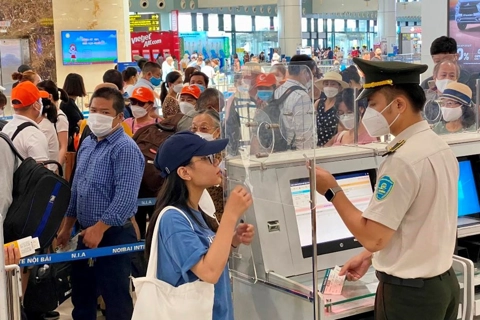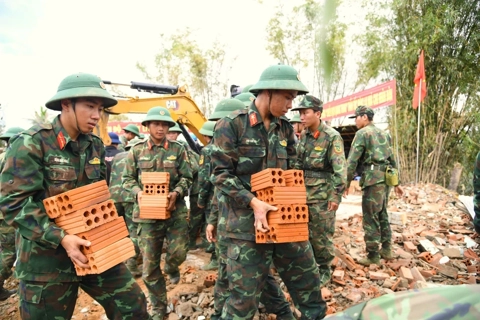Phu Bai Int'l Airport pilots biometric passenger identification system
Biometric technology is expected to help maintain social order and security, reduce check-in time and increase accuracy.
Phu Bai International Airport in the central province of Thua Thien-Hue has piloted facial recognition (biometric authentication) for passengers at the check-in counter, with the trial period scheduled from May 13 to June 13, according to the Civil Aviation Authority of Vietnam (CAAV).
After Cat Bi International Airport in the northern city of Haiphong and Van Don International Airport in the northern province of Quang Ninh, this is the third airport in the country to pilot this advanced facial recognition technology.
Terminal T2 at Phu Bai International Airport. Photo: The Airports Corporation of Vietnam |
Travelers using electronic citizen ID cards with embedded chips must pass through a facial recognition system at security checkpoints.
The screening system at Phu Bai International Airport utilizes VeriPAX software, which has been developed by the Airports Corporation of Vietnam (ACV). This software displays all the information extracted from ID cards and travel documents linked to the passenger manifest, allowing for the verification of ID card and boarding pass information.
Aviation officers would allow passengers into the screening area if the information on the IDs and facial images matches the travel information. The software also alerts passengers when their baggage requires manual inspection.
The high-tech measure is expected to improve the airport's operational efficiency and better identify aviation offenders, such as fake IDs, cross-border criminals, and people banned from flying.
In addition, facial recognition technology is expected to help maintain social order and security, reduce check-in time, and increase accuracy.
It can also improve the prevention and detection of passengers using fraudulent documents, as well as identify passengers who are banned from flying or wanted criminals.
The average time to process a passenger is 60 seconds, while the average time to read an ID card and boarding pass is about 15 seconds per passenger. Test results showed that the system was effective in assisting aviation security personnel with passenger screening.
ACV was also asked to implement the trial plan at Noi Bai International Airport in Hanoi.

.jpg)








